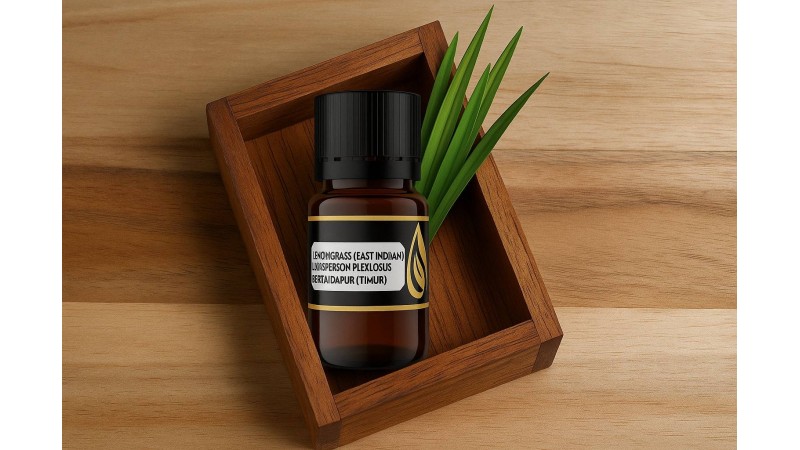Essential oils, such as lemongrass essential oil, are widely valued for their therapeutic benefits—from aromatherapy and skincare to natural insect repellents. However, did you know that improper storage can significantly reduce the quality and potency of these oils? Exposure to light, air, and heat can break down their chemical components, making them less effective.
To help you get the most out of your essential oils, here’s a complete guide on how to properly store and care for essential oils so they remain fresh and effective for years.
Why Proper Storage Matters
Essential oils are highly sensitive substances. Their active components, such as citral, geraniol, and limonene, can easily degrade when exposed to environmental factors. When oxidation occurs, it can lead to:
-
A noticeable change or loss in aroma
-
Cloudiness or discoloration
-
Reduced therapeutic benefits
-
Increased risk of skin irritation
This is why proper care and storage are crucial to maintain quality and safety.
Key Factors That Affect Essential Oil Quality
Before diving into storage tips, let’s understand what causes essential oils to deteriorate:
-
Light Exposure
Sunlight breaks down the chemical structure of essential oils, making them less effective. -
High Temperature
Heat speeds up oxidation and evaporation of volatile compounds. -
Air Contact
Oxygen reacts with oil molecules, causing them to oxidize and lose potency. -
Contamination
Touching the dropper with your hands or mixing oils without sterilization can introduce bacteria and reduce quality.
How to Store Essential Oils Properly
1. Use Dark Glass Bottles
Essential oils should always be stored in amber (dark brown) or cobalt blue glass bottles. These colors help block light exposure that can degrade the oil. Avoid plastic containers as essential oils can react with plastic and alter the chemical composition.
2. Keep Them in a Cool, Dark Place
The ideal storage temperature for essential oils is between 59°F and 77°F (15–25°C), away from direct sunlight and heat sources. A closed cabinet or essential oil storage box works perfectly.
If you live in a warm climate, storing oils in the refrigerator (chiller section) can help maintain their stability. Just make sure the temperature is not too low to prevent thickening.
3. Always Tighten the Cap After Use
Every time you use an essential oil, immediately close the lid tightly. Prolonged exposure to air accelerates oxidation and can alter the aroma and properties of the oil.
4. Avoid Contamination
Never dip dirty droppers or fingers into the bottle. Use a clean dropper or the original cap to prevent introducing bacteria or moisture. If you make DIY blends, ensure all containers and tools are sterilized.
5. Measure Carefully
Only take the amount you need. Pouring out too much and returning the excess to the bottle can introduce air or contaminants that compromise quality.
How Long Do Essential Oils Last?
Shelf life varies by type, but generally, essential oils last 1–3 years when stored properly. Lemongrass essential oil typically lasts up to 2 years under ideal conditions.
Pro tip: Label your bottles with the opening date so you know when to use them before they expire.
Signs Your Essential Oil Has Gone Bad
Here are some indicators that your oil is no longer safe for use:
-
The aroma has changed or smells rancid
-
The oil appears cloudy or has unexpected sediment
-
The consistency feels different from when you first opened it
If any of these occur, do not use the oil on your skin as it may cause irritation.
Bonus Tips: Traveling with Essential Oils
If you frequently travel, transfer your oils into smaller bottles (5–10 ml) for convenience. Keep them in a spill-proof pouch and avoid leaving them in hot areas such as a car dashboard.
Conclusion
Proper storage is essential for preserving the aroma, potency, and therapeutic properties of your essential oils. Use dark glass bottles, keep them in a cool, dark place, avoid air exposure, and always seal them tightly. With these simple yet effective practices, your lemongrass essential oil from DDistillers will stay fresh and beneficial for as long as possible.
Taking the time to store your oils correctly not only saves you money but also ensures you get the maximum benefits from these natural wonders. Start implementing these tips today and enjoy long-lasting quality from every drop!



Leave Your Comment